Has Wembley chaos wrecked Britain and Ireland’s 2030 World Cup bid?
Boris Johnson remains confident of the joint bid despite the ‘scenes of mayhem’ at Euro 2020 final
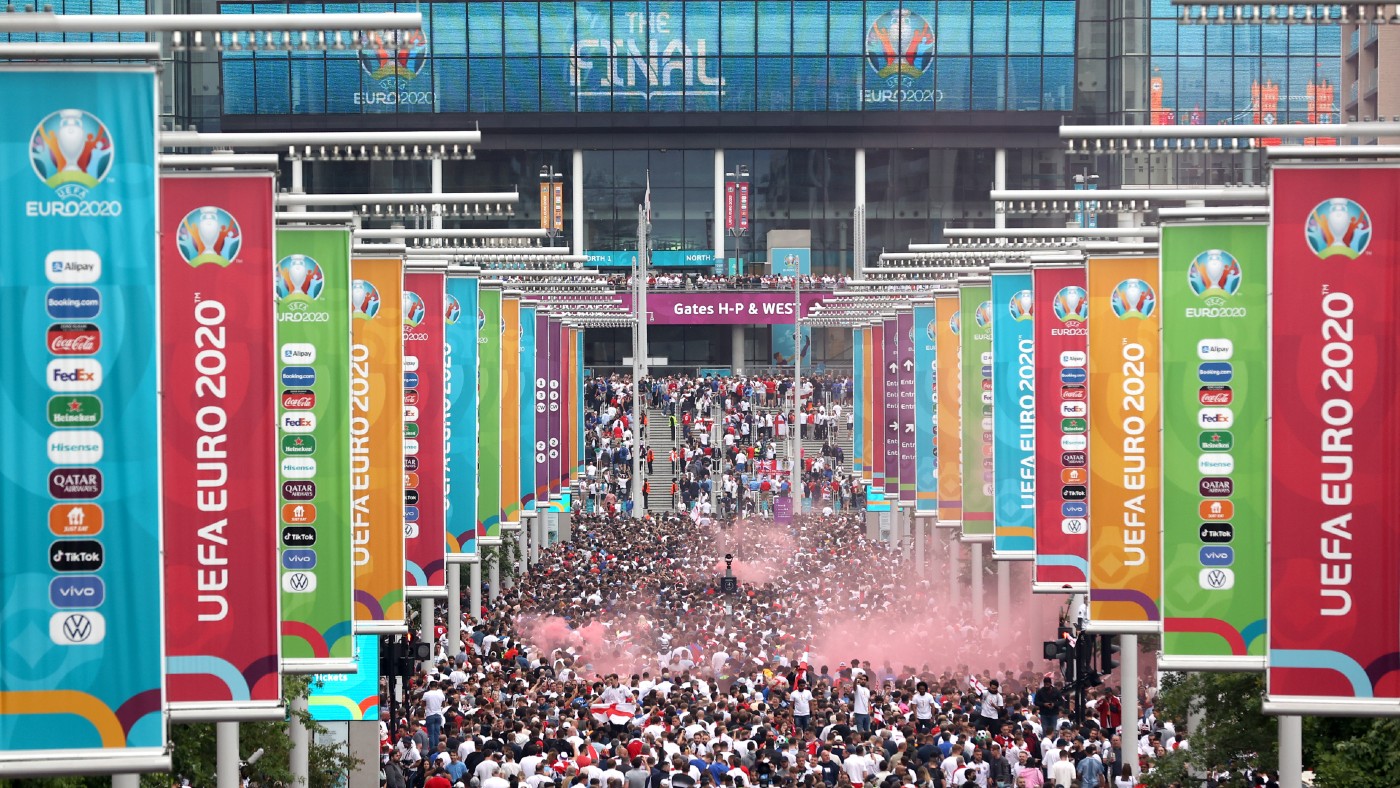
A free daily email with the biggest news stories of the day – and the best features from TheWeek.com
You are now subscribed
Your newsletter sign-up was successful
England lost the Euro 2020 final and some fans “lost the plot”, says the Indian Express. There was a time in the 1980s and 1990s when there was just one word to describe the average England football fan - “hooligan” - and the final at Wembley “proved once again that frenzy for the game can often bring out the worst in football followers”.
Ahead of the big match Wembley Way was described by one Italy supporter as “a battleground: trash everywhere, trees being pulled and England fans forcing their way up stairs to the stadium and causing crushes”. Inside the stadium an England fan said it was “absolute bedlam”, The Guardian reports.
Not all England supporters should be tarred with the same brush. The Metropolitan Police Federation said it was “thugs not fans” who attacked 19 police officers. The body, which represents thousands of London’s police officers, tweeted: “These people should be ashamed of themselves.”
The Week
Escape your echo chamber. Get the facts behind the news, plus analysis from multiple perspectives.

Sign up for The Week's Free Newsletters
From our morning news briefing to a weekly Good News Newsletter, get the best of The Week delivered directly to your inbox.
From our morning news briefing to a weekly Good News Newsletter, get the best of The Week delivered directly to your inbox.
The English Football Association is facing a heavy fine from Uefa, and a possible suspended stadium ban, after “ticketless hooligans” forced entry to the final and “ran riot inside and outside the ground”, says The Telegraph.
Their actions could have long-term consequences as there are “major fears” that Britain and Ireland’s bid to host the 2030 World Cup could now be wrecked.
The English Football Association released a statement saying it strongly condemns the behaviour of those fans who forced their way into the stadium. It said: “This is entirely unacceptable. These people are an embarrassment to the England team and to all of the true fans who wanted to enjoy one of the most important matches in our history.”
With racist online abuse of players and the storming of Wembley, the beautiful game turned ugly once again. Have the disturbing scenes at the Euro 2020 final marked an unwelcome resurgence of the “English disease”?
A free daily email with the biggest news stories of the day – and the best features from TheWeek.com
The rise of the ‘firms’
Violence at football matches has been a feature of English life since the formation of the first leagues in the 19th century, and was a natural by-product of fierce team rivalries and a drinking culture that made the pub as important a venue as the stadium for many fans.
However, in the 1960s, these sporadic outbursts of spontaneous violence gave way to semi-organised bouts between rival “firms”.
By the 1970s, “each club had its own hard core of violent young men whose prime purpose each week was not to watch their team play but to confront the crew of the rival club”, says The Sunday Post. Stadiums, trains and town centres became “perilous places to be on a Saturday afternoon”, the Scottish newspaper adds.
Other forms of misbehaviour during matches, such as fistfights on the terraces and pitch invasions, resulted in frightening and dangerous scenes of mass panic inside packed stadiums.
In a notorious incident in March 1978, dozens of fans were injured after a riot broke out in the stands during the FA Cup quarter-final between Millwall and Ipswich Town at The Den, spilling first onto the pitch and then into the streets around the stadium.
Hooliganism was also associated with unsavoury political allegiances - few hooligan firms included non-white members, and many were aligned with the racist National Front party or similar organisations.
The rise of hooliganism in the 1970s came as the English leagues featured an increasing number of black players, many of whom experienced racial abuse including monkey chants, slurs and bananas thrown onto the pitch.
The turning point
By the 1980s, England football fans had gained an international reputation for hooliganism, visiting booze-fuelled violence on cities around the world when the national team played abroad. Indeed, such behaviour was dubbed the “English disease”.
In a single month in 1983, 150 England fans were arrested in Luxembourg “after a riot that caused £100,000 worth of damage”, while “Spurs were fined by Uefa after violence in Rotterdam left 30 fans in hospital with stab wounds and other injuries”, according to The Guardian’s Sean Ingle.
The crisis came to a head in May 1985, when Liverpool fans descended on Heysel Stadium in Brussels to watch the team play Juventus in the European Cup final.
A police cordon had been set up to separate the rival fans, but minutes before kick-off, Liverpool hooligans overwhelmed the line of officers and charged into a stand of Juventus fans. In the ensuing chaos, 39 people - most of them Italians and Juventus fans - were crushed to death by a collapsing wall as they attempted to escape the violence.
The Heysel Stadium disaster shocked the world. For the next five years, all English clubs were barred from European tournaments, and the British government and sporting bodies dramatically stepped up their efforts to curb football violence.
Beginning with the Football Spectators Act of 1989, several new laws were introduced to give police and courts more powers to crack down on football-related violence, including stricter rules around alcohol consumption and a zero tolerance approach to racial abuse.
Banning orders have proved to be a key weapon in the battle against hooliganism. Introduced in the 1989 Act and strengthened in 2000, the orders can be used to bar troublemakers not only from stadiums but also from public transport and town centres on matchdays, and from travelling abroad for international fixtures.
A new generation?
By 2013, The Guardian’s Ingle could write: “Hooliganism, which was once considered a cancer, is now more like a cold sore; an irritation that flares up every so often rather than something that people feared could be terminal.”
Even so, “the culture of hooliganism continues to resonate”, says ESPN. Films such as Green Street and The Football Factory capitalise on our continuing fascination with “firms”, while “an Amazon search for ‘hooligan’ books generates more than 20 pages of results”, the sports news site adds.
And although banning orders “have certainly done a lot to reduce outright violence”, anti-social behaviour remains a persistent problem, says The Daily Telegraph.
-
 What to know before filing your own taxes for the first time
What to know before filing your own taxes for the first timethe explainer Tackle this financial milestone with confidence
-
 The biggest box office flops of the 21st century
The biggest box office flops of the 21st centuryin depth Unnecessary remakes and turgid, expensive CGI-fests highlight this list of these most notorious box-office losers
-
 What are the best investments for beginners?
What are the best investments for beginners?The Explainer Stocks and ETFs and bonds, oh my
-
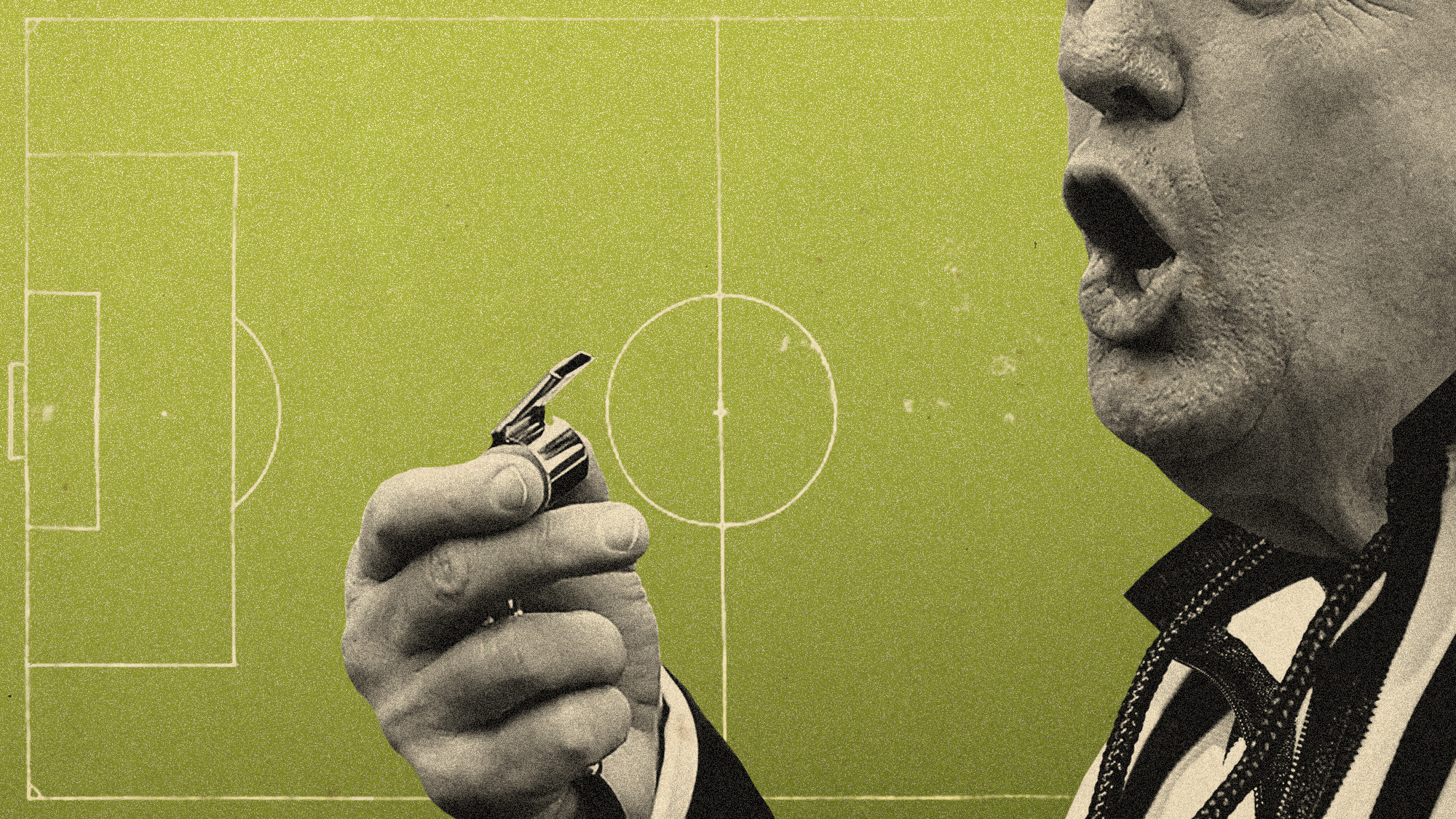 Will 2026 be the Trump World Cup?
Will 2026 be the Trump World Cup?In the Spotlight US president already using the world’s most popular football tournament to score political points
-
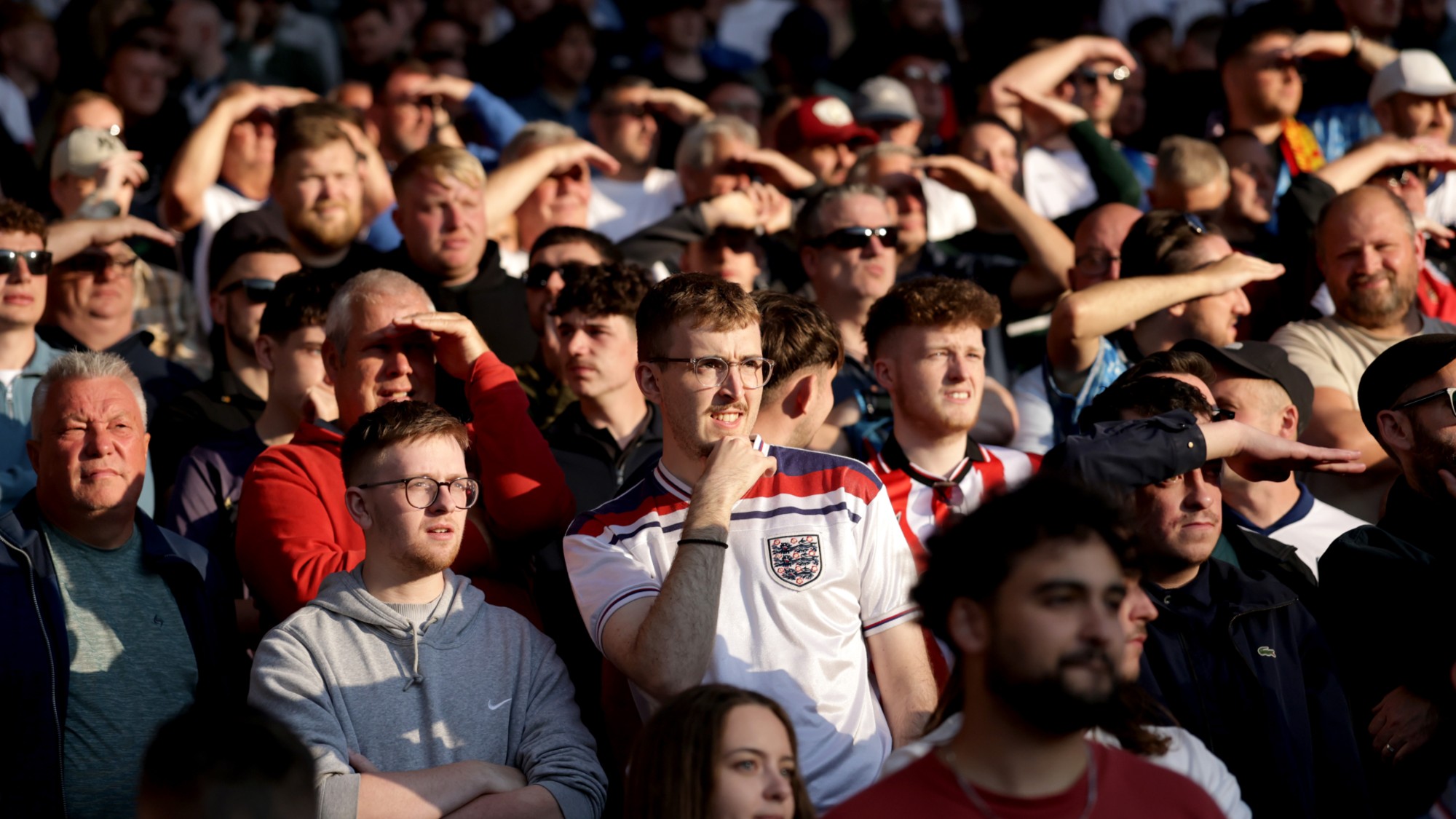 World Cup 2026: uncertainty reigns with one year to go
World Cup 2026: uncertainty reigns with one year to goIn the Spotlight US-hosted Fifa tournament has to navigate Trump's travel bans, logistical headaches and an exhausting expanded format
-
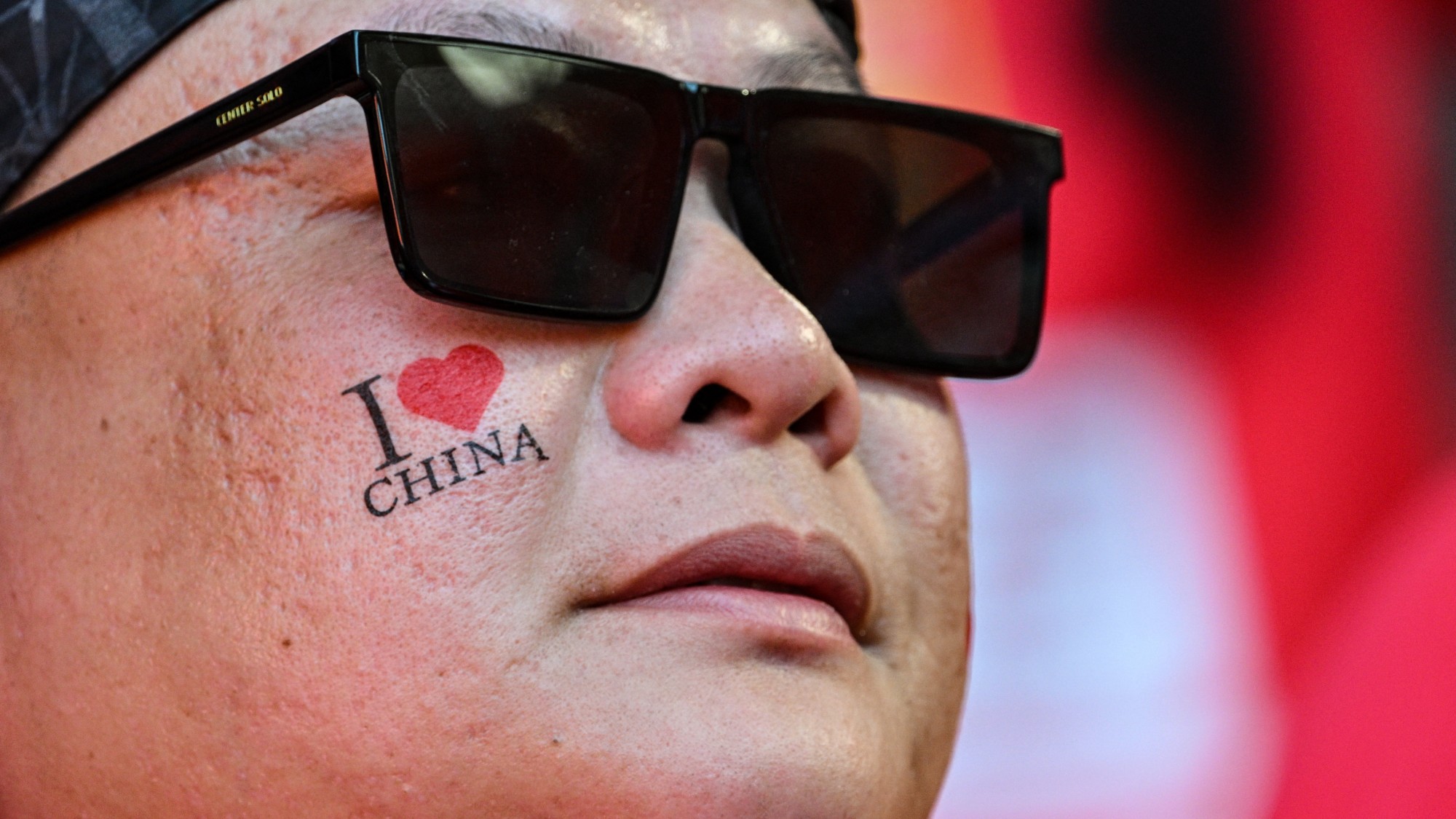 China's football crisis: what's happened to Xi's XI?
China's football crisis: what's happened to Xi's XI?In The Spotlight String of defeats and finishing bottom of World Cup qualifying group comes a decade after Xi Jinping launched a football crusade
-
 Saudi Arabia World Cup: have lessons been learned from Qatar?
Saudi Arabia World Cup: have lessons been learned from Qatar?Today's Big Question Human rights groups fear a repeat of issues at the 2022 tournament
-
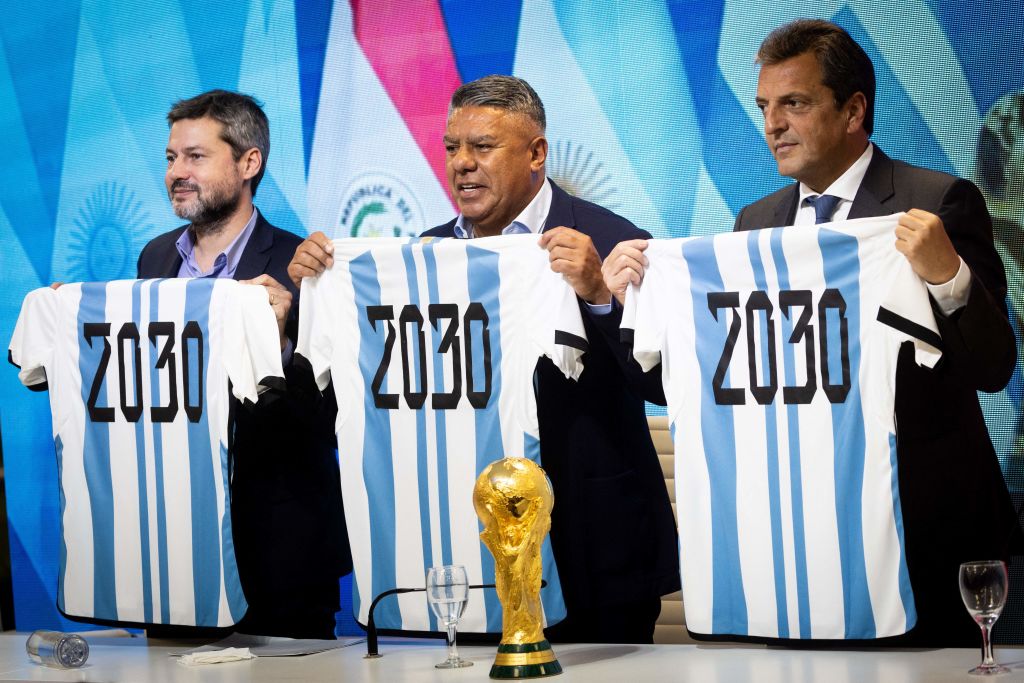 FIFA is embroiled in back-to-back controversies around the World Cup
FIFA is embroiled in back-to-back controversies around the World CupUnder The Radar The controversial selection of the 2030 hosts puts Saudia Arabia in a prime position for 2034
-
 Saudi Arabia's 2034 World Cup: glitz, glamour and 'grimly inevitable'
Saudi Arabia's 2034 World Cup: glitz, glamour and 'grimly inevitable'Talking Point Critics claim country is guilty of sportswashing as it stands unopposed to host tournament
-
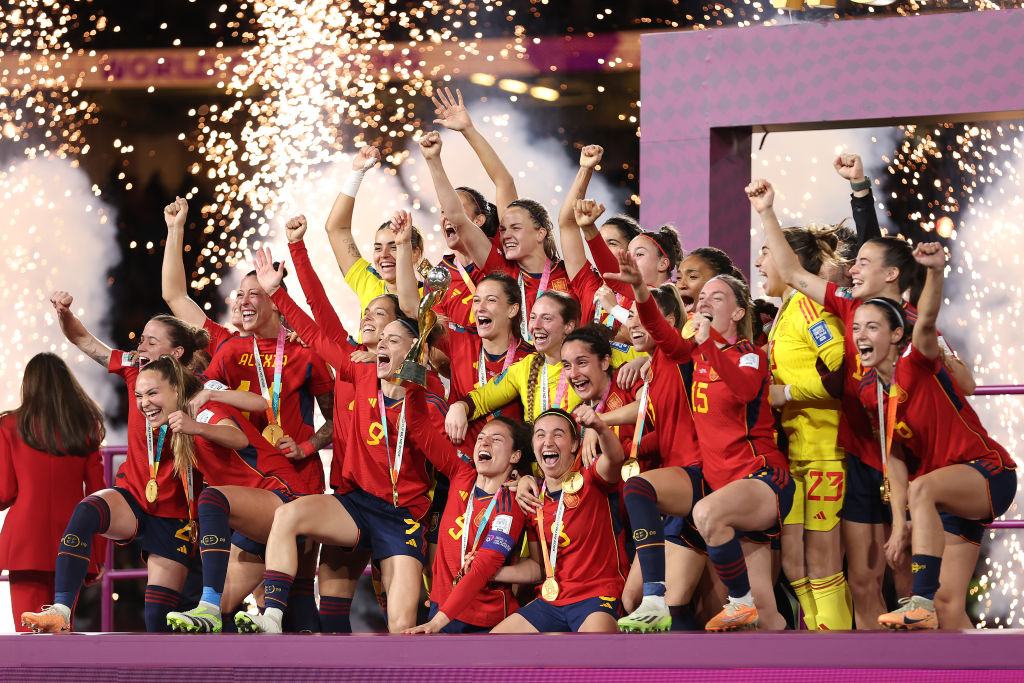 Spain beats England 1-0 to win its first Women's World Cup
Spain beats England 1-0 to win its first Women's World CupSpeed Read
-
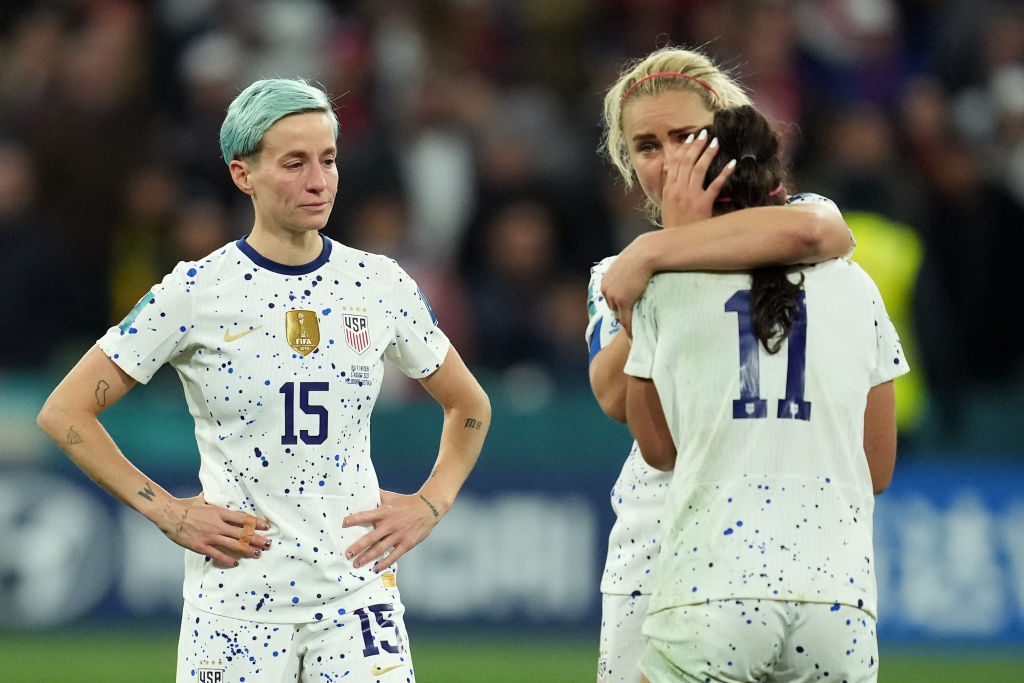 US knocked out of Women's World Cup in stunning exit
US knocked out of Women's World Cup in stunning exitSpeed Read